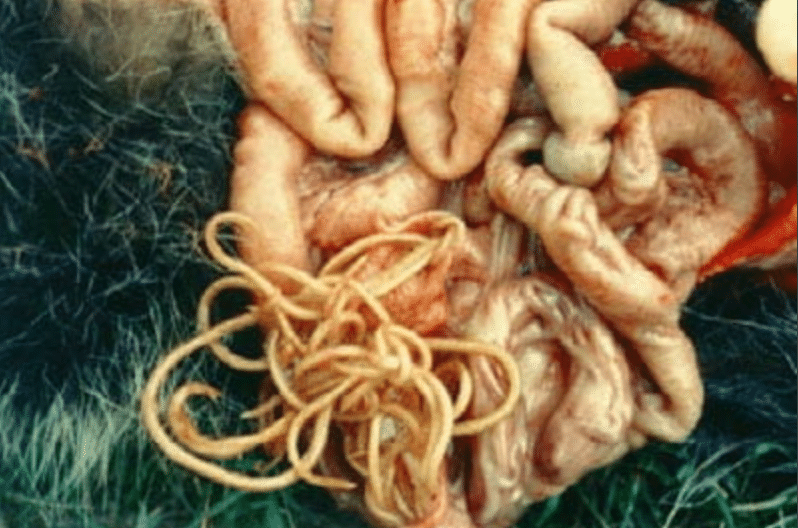Raccoon Roundworm: Brain-infecting parasite found in 2 LA County residents

Baylisascaris procyonis or Raccoon Roundworm can infect the human spinal cord, brain and eyes, health officials said. Image: michigan.gov website
LOS ANGELES – Los Angeles County public health officials said Wednesday they are investigating two human cases of a rare infection known as raccoon roundworm in the South Bay area.
No details about the patients were released. The infection, Baylisascaris procyonis, can infect the human spinal cord, brain and eyes, health officials said.
“While Baylisascaris is rare in people and the risk to the general public is low at this time, it is concerning because a large number of raccoons live near people, and the infection rate in raccoons is likely high,” according to the county Department of Public Health.
“The confirmed cases of this rare infection are an important reminder for all in Los Angeles County residents to take precautions to prevent the spread of disease from animals to people, also known as zoonotic disease.”
Health officials said people can become infected with the illness if they consume dirt, soil, water or other material contaminated with an infected raccoon’s feces. Young children and developmentally disabled people can be at higher risk since they are more likely to put contaminated fingers, soil or other objects into their mouths. The infection cannot be spread from person to person.
“Our health is closely linked to the health of animals around us,” Dr. Muntu Davis, Los Angeles County health officer, said in a statement.
“Simple precautions, like washing your hands regularly, avoiding direct contact with wild animals and their waste, keeping pets healthy, and preventing wildlife from sheltering or living in or next to our homes or properties can help keep our neighborhoods and families safe and healthy.” (CNS)

